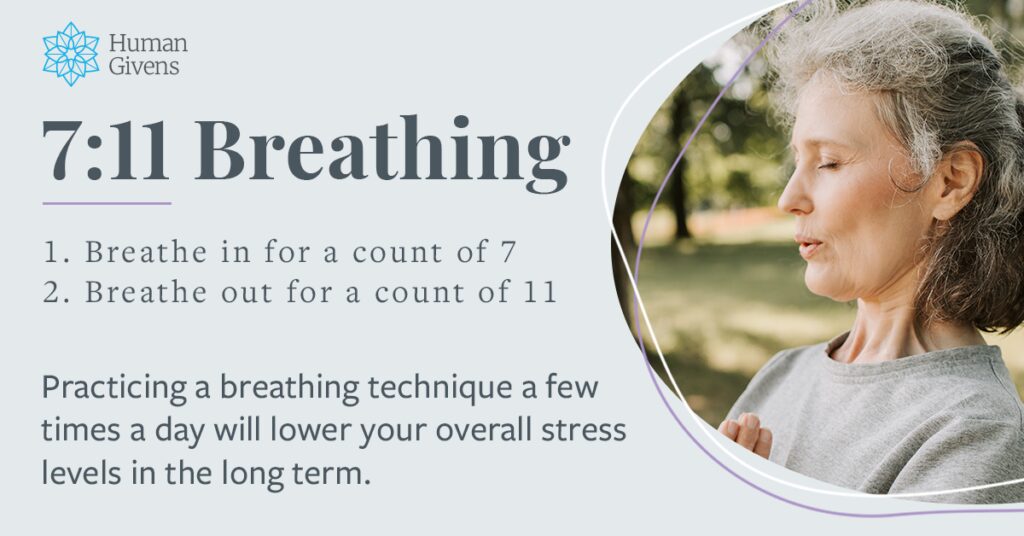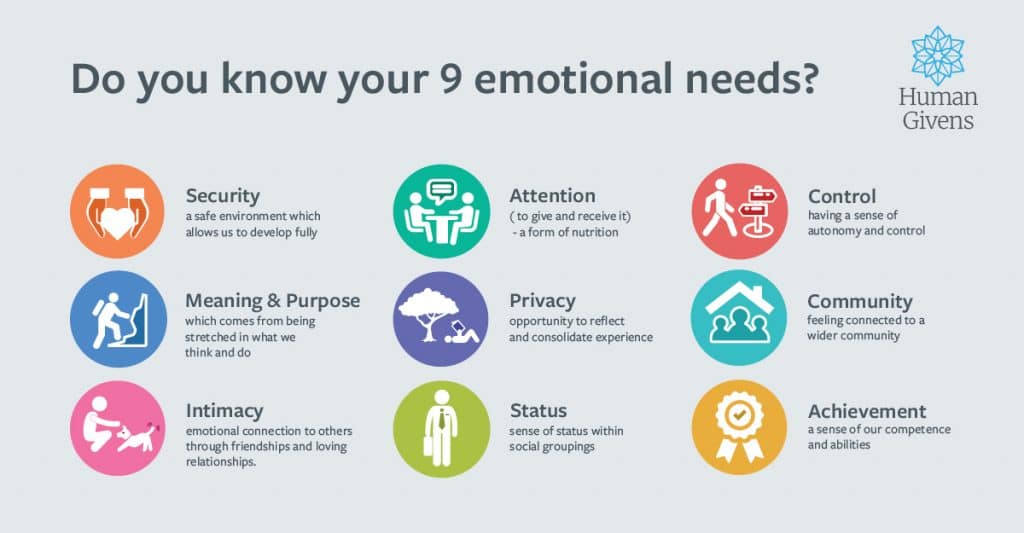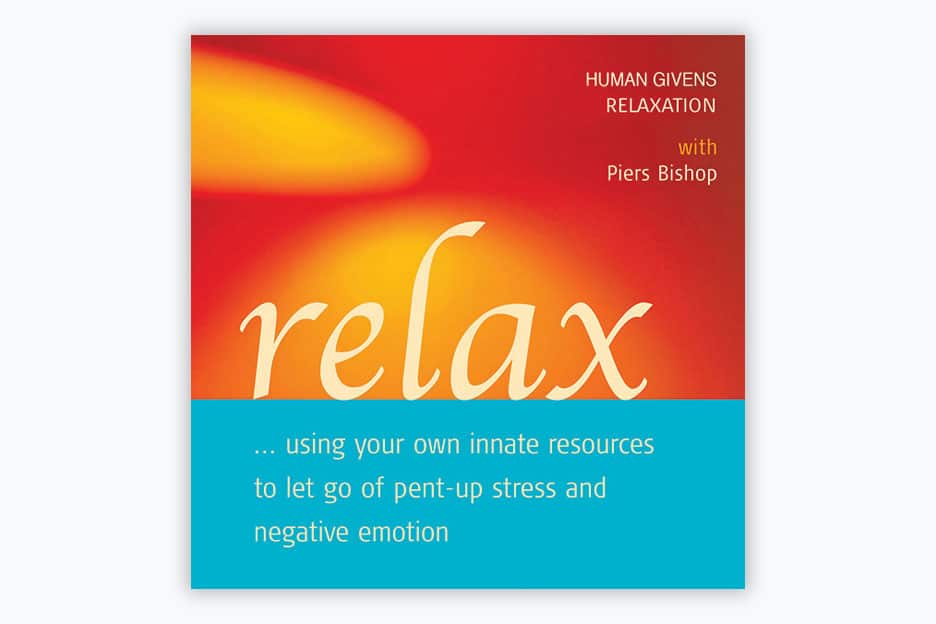Mental Health Awareness Week
#ToHelpMyAnxiety
Anxiety is a gift from nature because it aids survival – none of us would live long if anxiety didn’t stop us from exposing ourselves to danger! But, like anything else, excessive anxiety can be problematic and disabling. Continuous fear, worry, panic attacks, phobias, obsessive-compulsive behaviours, and post-traumatic stress reactions are all forms of excessive anxiety.
Living with anxiety is physically and emotionally damaging but anxiety is not all-powerful and inexplicable. It can be managed very easily when you know how…
You already have all of the tools you need to take back control
Identify what is missing
When anxiety becomes out of control, it means something isn’t working properly in our lives. This could be because one or more of your 9 emotional needs aren’t being met well, or in balance, or because your innate resources which were designed to help us meet our needs aren’t functioning as they should (this is known as the human givens approach). By identifying and addressing the missing needs and learning to make the best use of your resources – your natural guidance system – will allow you to master effective ways to ensure yourself a better future.
Explore more about the human givens approach
Take back control
If you or someone you know suffers from high levels of anxiety, there are many things that people can do to help themselves. Clear, practical information can be found in our anxiety resources listed below. If you live or work with anxious people, we also offer a range of accredited mental health training courses – click here to find out more >
How to relax quickly
On our Human Givens College training courses, we teach a technique which Joe Griffin named ‘7-11’ breathing, because it’s the most powerful technique we know.
Here is how you do it, and it is as easy as it sounds:
- Breathe in for a count of 7.
- Then breathe out for a count of 11.

If you find that it’s difficult to lengthen your breaths to a count of 11 or 7, then reduce the count to breathing in for 3 and out to 5, or whatever suits you best, as long as the out-breath is longer than the in-breath.
Continue in this way for 5-10 minutes or longer if you have time – and enjoy the calming effect it will have on your mind and body. An added bonus of 7-11 breathing is that the very act of counting to 7 or 11 is a distraction technique, taking your mind off your immediate concerns.
This 7/11 breathing technique for relaxing quickly is the most powerful we know and has been used for thousands of years throughout the world.
Make sure that when you are breathing in, you are doing deep ‘diaphragmatic breathing’ (your diaphragm moves down and pushes your stomach out as you take in a breath) rather than shallower higher lung breathing.
“Stress and anxiety massively inhibit academic learning and performance"
Student Anxiety
Even before the global pandemic turned university students’ lives upside-down, student mental health was a real and deepening issue. Between 25 and 30% of students experience exam anxiety, but there are many other triggers too; performing arts students can be crippled by performance anxiety, for example, and students starting – or imminently finishing – university or moving into the next year can often experience transition anxiety.
In this fascinating ‘Learning and Anxiety’ podcast, Jo Baker, Senior Fellowship of the Higher Education Academy (SFHEA), HG diploma tutor, and assessor for the University Mental Health Charter, explains how anxiety is a huge problem for many young people today, affecting their mental health and ability to learn effectively, and how she works to embed vital knowledge and good mental health practices at all levels of university life.
Continue to learn about student anxiety by visiting our University Mental Health Awareness Day page.






